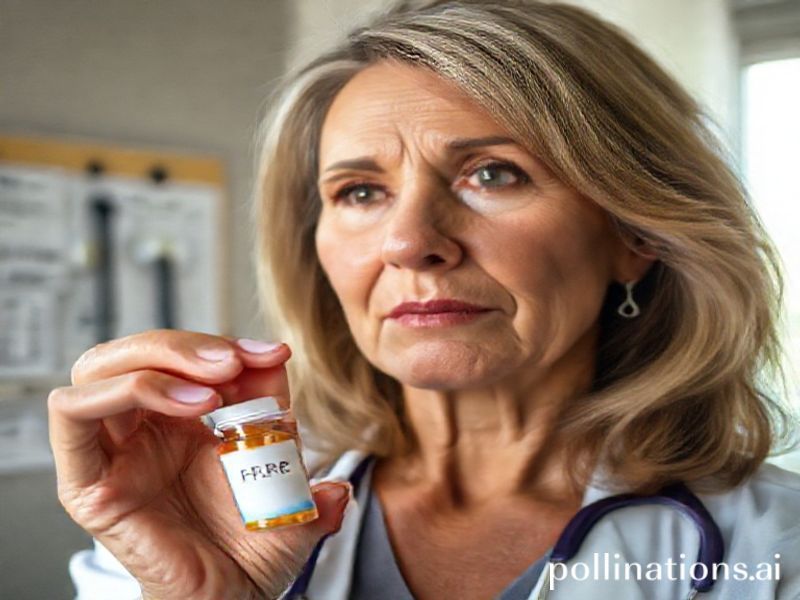Hot Flashes & Hot Takes: The FDA’s Menopause Hormone Therapy Shake-Up
# **Hot Flashes & Hot Takes: The FDA’s Menopause Hormone Therapy Shake-Up**
Alright, folks, buckle up because we’re diving into a topic that’s heating up faster than a menopausal woman in a sauna—FDA-approved menopause hormone therapy (MHT). Yes, we’re talking about the big, the bold, and the sometimes controversial world of hormone replacement therapy (HRT). Why’s it trending globally? Well, grab your fans and let’s break it down.
### **The Cultural Context: Menopause in the Spotlight**
Menopause has long been a taboo topic, whispered about in hushed tones or joked about in ways that make women roll their eyes harder than they do during a hot flash. But thanks to a combination of celebrity candidness (hello, Oprah and Ellen), social media activism, and a growing demand for better healthcare options, menopause is finally getting the attention it deserves.
Enter the FDA, the regulatory body that’s been making waves with its recent decisions on MHT. The FDA’s approval of new hormone therapies has sparked a global conversation about women’s health, aging, and the importance of tailored medical treatments. It’s not just about relieving symptoms anymore; it’s about reclaiming autonomy over our bodies and our lives.
### **The Social Impact: Breaking the Silence**
For decades, women have suffered in silence, dismissing their symptoms as “just part of getting older.” But thanks to the internet, women are connecting, sharing their experiences, and demanding better. Social media platforms like Instagram and TikTok are flooded with #MenopauseTalk and #HRTJourney posts, where women openly discuss their struggles and triumphs.
The FDA’s approval of new MHT options has given women hope. It’s a nod to the fact that menopause isn’t just a phase to be endured—it’s a significant life transition that deserves medical attention and support. And let’s be real, the internet loves a good “before and after” story, and menopause is no exception. The transformation from “I can’t function” to “I feel like myself again” is a narrative that resonates with women worldwide.
### **Why It’s Significant: More Than Just Hot Flashes**
The significance of the FDA’s MHT decisions goes beyond symptom relief. It’s about recognizing the broader impact of menopause on women’s mental health, relationships, and professional lives. Hot flashes, mood swings, and sleep disturbances aren’t just inconveniences—they can be debilitating.
By approving new MHT options, the FDA is acknowledging the complexity of menopause and the need for personalized treatments. It’s a step towards destigmatizing menopause and empowering women to seek the help they need without shame or judgment.
### **The Global Perspective: A Worldwide Wake-Up Call**
The trend isn’t just confined to the U.S. Countries around the world are taking notice, with healthcare systems and policymakers reevaluating their approach to menopause care. From the UK’s National Health Service (NHS) updating its guidelines to Japan’s growing interest in hormone therapy, the global conversation is in full swing.
The internet has played a crucial role in this global exchange of ideas and experiences. Women worldwide are sharing their stories, connecting with experts, and advocating for better menopause care. It’s a testament to the power of digital communities in driving social change.
### **Conclusion: The Future of Menopause Care**
The FDA’s MHT decisions are more than just regulatory updates—they’re a reflection of a broader cultural shift. Menopause is no longer a topic to be avoided or dismissed. It’s a critical health issue that demands attention, research, and compassionate care.
As we move forward, let’s hope that the momentum continues. Let’s keep the conversation going, break down the stigma, and advocate for better menopause care worldwide. Because every woman deserves to navigate this transition with dignity, support, and the best medical options available.
And remember, ladies, if you’re going through menopause, you’re not alone. The internet’s got your back—and so does the FDA.







